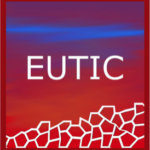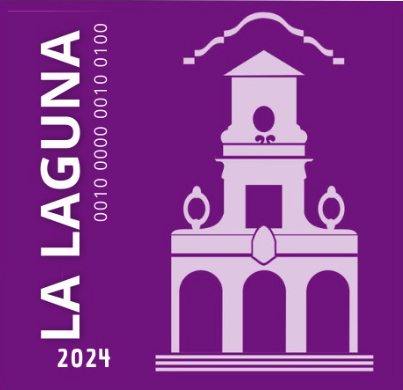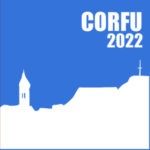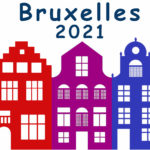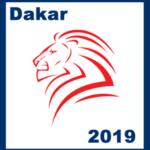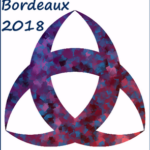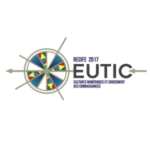Registration for the EUTIC 2023 international conference is now open on Sciences Conf
18th International Conference EUTIC 2023
Multidisciplinary Research Network on the Challenges and Uses of Information Communication Technologies
DIGITAL HUMANISM AND SOCIAL SUSTAINABILITY
Université Bordeaux Montaigne
MICA-ICIN
11-13 October 2023
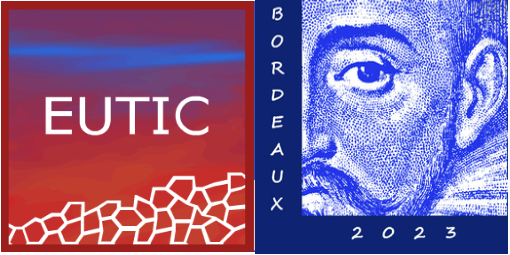
Bordeaux 2023 International Conférence
Location: Maison des Sciences de l’Homme
EUTIC Website
http://conference-eutic.org/

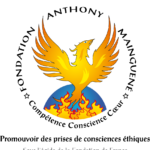
With the support of the Fondation Anthony Mainguené
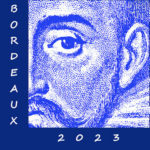
Bordeaux 2023
The International Multidisciplinary Research Network on the Challenges and Uses of Information and Communication Technologies (EUTIC) has the pleasure to announce the 18th edition of its Annual EUTIC International Conference, which will be held on 11th-13th October 2018 in Bordeaux (France).
Organized by MICA- ICIN,Université Bordeaux- Montaigne.
18th EUTIC International Conference
DIGITAL HUMANISM AND SOCIAL SUSTAINABILITY
« Chaque homme porte la forme entière de l’humaine condition ».
Montaigne, Essais, livre III, 2
Today, more than ever, digital technologies are the subject of intense debate due to their rapid development, whether in the public and professional domains or in everyday life. At the pace of incessant innovation, the nature and quality of equipments have evolved rapidly, profoundly changing people’s practices in just a few years.
They promote speed, efficiency and performance, but they are not just tools, as their scope is broader. The amount of information conveyed, processed and transferred has increased exponentially, leading to transformations in terms of usage. Visibility on the networks has become a “proof” of both existence and the ability to be productive. Accessibility, connectivity, mobility and informational ubiquity via digital technologies are now the criteria for success in the world of work and economic and cultural activities.
The fundamental question is that of the place of humans in these processes, in relation to the technologies they have created, in relation to their fellow human beings, and in relation to their surrounding universe. Amidst cutting-edge innovations linked to digital technology, should we see the announcement of an imminent enslavement to algorithms and robots of all kinds? What is the place of Humanism in this evolution? What is the meaning given by humans to digital activity in human work?
EUTIC2023 is an opportunity to re-examine the changes that the development of digital technology has brought about in societies. It is a form of paradox: in order to ensure their own development, societies have included digital technologies in most of their activities, but at the same time this has led to profound changes in their way of working to the point of fearing their endangerment. For centuries, humans have been trying to surpass their technical performance. The risk is to lose control and be overwhelmed by the systems and objects humans have created, notably since the development of computers, networks and artificial intelligence.
The epidemiological, climatic, political and ideological crises that we are currently experiencing serve as revelations and show the vital importance of returning to fundamental values in order to regain a balance in our relationships with the environment in which we live and with our fellow human beings in order to fully assume our humanity. Following Claude Lévi-Strauss (2011) who highlighted three forms of humanism, a fourth humanism is emerging, ‘digital humanism’ (Doueihi 2012), advocating human and ethical values in a world undergoing profound change.
The approach may seem difficult to those who consider that the digital world and humanism could be antagonistic or even irreconcilable. However, many ICT-based projects manage to put the human component and meaning back into the digital world or the use of digital technology for the benefit of humanity, while at the same time demonstrating their effectiveness: by encouraging the expression of opinions (citizen journalism, blogs, social networks, forums); by proposing an alternative approach to developing collaborative practices (Communs, third places, Fab-Labs); by encouraging autonomy, a sense of responsibility and initiative, as well as cooperation and solidarity (microblogs, syndication, participative and cooperative models). We are all aware that there is a flip side to the coin and that there is a permanent risk of abuse and misuse. It is of course important to ensure that all these actions are regulated.
The concept of social sustainability encompasses concepts such as commitment, responsibility, cooperation and development, interchange, ethics, and human adaptation. It aims to meet the demands of justice and democracy. The sustainability principle is therefore committed to the survival of society itself, for the continuity of the relationships and fundamental notions that establish dimensions of individuals’ lives in society. In times of crisis, it is clear that to be socially sustainable, developments must provide satisfactory material conditions, with provisions for health, education, and access to goods, so that everyone has a sense of security, dignity and belongingness to a community. All these elements are inseparable from the environmental resources needed to sustain life, health, and well-being (Dugarova, E., Utting, P., Cook, S., 2015).
In each of its international conferences, the EUTIC network endeavours to propose themes that are fully in line with current events, aiming to mobilise the interdisciplinarity of specialists and the participation of speakers who are strongly involved in the field. The richness and diversity of the contributions will allow for the broadening of each person’s perspectives with a vision of broad-mindedness and international cooperation.
Several areas will be covered in the presentations, workshops and round tables. This is a non-exhaustive list:
- Humanism and digital uses in the territories
- Social sustainability and environmental protection
- Development of human potential and well-being at work
- Digital uses for vulnerable populations
- Governance, ethics and management of organisations
- Social commitment, cooperation and volunteering
- Remote or face-to-face work, the meaning of the activity in question.
- Digital training and development dynamics
- Socio-economic developments and collective intelligence
- Interculturality and digital ecosystems
- Connected objects, augmented reality, artificial intelligence and intelligence factory(s)
- Learning systems in the 21st century
- Ethics of resource outsourcing, cloud computing, open data, open archives
Two round tables with professionals and academics will be organised in the programme :
- Humanism and self-reflection in the field of prisons (Erasmus and Butterfly Programme)
- Eco-civic engagement and environmental protection
The scientific committee will carefully verify that the theoretical and empirical contributions in the proposed papers are carefully presented in a rigorously established methodology. The plenary lectures, round tables and poster presentations will additionally offer a variety of approaches.
EUTIC CONFERENCES 2005-2022
The EUTIC network led by MICA-ICIN, University of Bordeaux-Montaigne, is the result of partnerships we have built in the framework of several international programmes. The different projects developed in the network focus on social and cultural issues of ICT (Information and Communication Technologies). The issues addressed are centred around social inclusion of citizens and equal opportunities for access to information and knowledge.
| I 22 -23 September 2005 | Bordeaux (France) | Social and cultural aspects |
| II 13-15 September 2006 | Brussels (Belgium) | Social and professional integration |
| III 7-10 November 2007 | Athens (Greece) | Media and information diffusion: towards an open society |
| IV 23-25 October 2008 | Lisbon (Portugal) | Development dynamics at the cross-roads of worlds |
| V 18-20 November 2009 | Bordeaux (France) | Change strategies in systems and territories |
| VI 25-27 November 2010 | Dakar (Senegal) | The digital at the heart of partnerships |
| VII 23-25 November 2011 | Brussels (Belgium) | Transformation of organizations, evolution of agendas and functional mutations |
| VIII 17-19 October 2012 | Metz (France) | Publics and media practices |
| IX 23-25 October 2013 | Waterford (Ireland) | Engagement of publics and enterprises in a dynamic environment. The role of global networks |
| X 29-31 October 2014 | Lisbon (Portugal) | The role of ICT in information and cognitive process design |
| XI 3-4 November 2015 | Fort de France | Digital ecosystems and democratization of information |
| XII 15-17 September 2016 | Zakynthos ( Greece) | Network logic and new forms of governance |
| XIII 18-20 October 2017 | Recife (Brazil) | Digital cultures and knowledge crossing |
| XIV 17-19 October 2018 | Bordeaux (France) | Adaptability, flexibility, agility of information systems |
| XV 16-18 October 2019 | Dakar (Senegal) | Smart territories and learning societies |
| XVI 5-26 October 2021 | Brussels (Belgium) | The challenges of the digital transition |
| XVII 13-15 October 2022 | Corfou (Greece) | At the crossroads of art, science and technology: dialogues between humans and machines |
SUBMISSIONS
Proposals will be made in English or French. Both oral and poster pre. They may be presented in the form of a paper or poster. Proposals should include the following:
- Name of author, university, organisation, institution or company of affiliation, position held, email address, postal address, and a telephone number.
- Title of the paper, 5 key words, abstract of 5000 to 6000 characters presenting the subject of the contribution, the methodological framework, the corpus of data analysed, and the obtained or expected results.
Selected proposals will be subject to possible amendments or revisions requested by the scientific committee.
All accepted papers will be published in the conference proceedings in digital format, if the author or one of the authors is registered and present at the conference.
To submit proposals, please contact the Organising Committee at the following address: reseau.eutic@gmail.com
Please mention in the subject line of the email: “EUTIC2023 paper proposal”.
The indications concerning the deposit of the texts will be specified on the site of the EUTIC network http://conference-eutic.org. Submission until May 31, 2023
The full text must be sent by September 15 at the latest, following the organisational procedures established and published on the Conference website.
The final text for publication of the proceedings will not exceed 30,000 characters (including spaces) + bibliography. The document template can be downloaded from the conference website.
CONFERENCE VENUE: Université Bordeaux Montaigne
WEBSITE CONFERENCE: http://conference-eutic.org
IMPORTANT DATES
| Announcement of the call for papers | 20 March 2023 |
| Deadline for submission proposals | |
| Author notifications | |
| Deadline for conference and dinner registration | 25 september 2023 |
| Deadline for submission of full papers before the conférence | 25 september 2023 |
| Conference dates | 11-13 october 2023 |
| Deadline for submission of the final text befor publication | 4 décember 2023 |
REGISTRATION- RATES
Payment details
Only payments by online bank transfer can be accepted (Please check registration details on the conference website).
| Registration Fees | Registration rates (before September 25th) | Standard |
| Academics and researchers (1st author) | 200 € | 250 € |
| Students/Doctoral students/communicating co-author | 100 € | 120 € |
| Non-university | 270 € | 320 € |
| Gala dinner | 50 € | 60 € |
Precisions :
The price of 200 euros concerns any teacher-researcher, whether unique author or first author.
The price of 100 euros concerns doctoral students and co-authors (2nd author, 3rd author etc.) attending the conference.
EUTIC NETWORK STEERING COMMITTEE:
- Lise VIEIRA, Université Bordeaux- Montaigne – Network Coordinator (FR)
- Serge AGOSTINELLI, Université des Antilles (FR)
- Noble AKAM, Université Bordeaux- Montaigne (FR)
- Didier BALTAZART, Université de Reims (FR)
- Carlos CORREIA, Universidade Nova de Lisboa (PT)
- Rodrigo DE SOUZA, Universidade Federal Rural de Pernambuco, (BRA)
- Raja FENNICHE DAOUAS, Université de la Manouba, Tunis (TUN)
- Andreas GIANNAKOULOPOULOS, Ionian University (GR)
- Dimitris GOUSCOS, University of Athens (GR)
- Claude LISHOU, Université Cheick Anta Diop (SEN)
- Michael MEIMARIS, University of Athens (GR)
- René PATESSON, Université Libre de Bruxelles (BEL)
- Irene TOMÉ, Universidade Nova de Lisboa (PT)
EUTIC 2023 SCIENTIFIC COMMITTEE:
- Serge AGOSTINELLI, Université des Antilles (FR)
- Noble AKAM, Université Bordeaux- Montaigne (FR)
- Isabel ALÇADA, Universidade Nova de Lisboa (PT)
- Jacques ARASZKIEWIEZ, Université Côte d’Azur (FR)
- Yves ARDOUREL, Université Bordeaux- Montaigne (FR)
- Sawsan ATALLAH BIDART Kedge Business School Bordeaux, (FR)
- Didier BALTAZART, Université de Reims (FR)
- Roger BAUTIER, Université Paris 13 (FR)
- Daniel BONNET, Université́ Jean Moulin, Lyon (FR)
- Peter CAREW, Waterford Institute of Technology (IRL)
- Dimitris CHARITOS, University of Athens (GR)
- Isabelle CHOQUET, ICHEC Management School à Bruxelles (BEL)
- Carlos CORREIA, Universidade Nova de Lisboa (PT)
- Rodrigo DE SOUZA, Universidade Federal Rural de Pernambuco, (BRA)
- Raja FENNICHE DAOUAS, Université de la Manouba, Tunis (TUN)
- Andreas GIANNAKOULOPOULOS, Ionian University (GR)
- María Lourdes GONZÁLEZ LUIS, Universidad de la Laguna (ES)
- Dimitris GOUSCOS, University of Athens (GR)
- Jean Thierry JULIA, Université de Toulouse (FR)
- Nikos KANELLOPOULOS, Ionian University (GR)
- Alain KIYINDOU, Université Bordeaux- Montaigne (FR)
- Eric LACOMBE, Université Bordeaux- Montaigne (FR)
- Vincent LIQUETE, Université Bordeaux- Montaigne (FR)
- Claude LISHOU, Université Cheick Anta Diop (SEN)
- Maria Cristina MATTEUCCI, Université de Psychologie de Bologne ( IT)
- Michael MEIMARIS, University of Athens (GR)
- Vincent MEYER, Université Côte d’Azur ( FR)
- Costas MOURLAS, University of Athens (GR)
- Andreas MOUTSIOS-RENTZOS, University of Athens (GR)
- Catherine PASCAL, Université Bordeaux- Montaigne (FR)
- René PATESSON, Université Libre de Bruxelles (BEL)
- José Alberto PINTO, Universidade de Trás-os-Montes e Alto Douro (PT)
- Pierre-Michel RICCIO, Ecole des Mines d’Alès (FR)
- Soufiane ROUISSI, Université Bordeaux- Montaigne (FR)
- Annick SCHOTT, Université́ Bordeaux- Montaigne (FR)
- Francisco Luis Dos SANTOS, Universidade Federal Rural de Pernambuco, (BRA)
- Larry STAPPLETON, Waterford Institute of Technology (IRL)
- Carlo TOMASETTO, Université de Psychologie de Bologne ( IT)
- Irene TOMÉ, Universidade Nova de Lisboa (PT)
- Geneviève VIDAL, Université́ Paris 13 (FR)
- Julien VIEIRA, Université Bordeaux (FR)
- Lise VIEIRA, Université Bordeaux- Montaigne (FR)
EUTIC 2023 ORGANISING COMMITTEE
Organized by : MICA-ICIN, Université Bordeaux Montaigne
Members of organizing committee
- Noble AKAM, Université Bordeaux- Montaigne (FR)
- Eric LACOMBE, Université Bordeaux- Montaigne (FR)
- Annick SCHOTT, Université́ Bordeaux- Montaigne (FR)
- Julien VIEIRA, Université Bordeaux (FR)
- Lise VIEIRA, Université Bordeaux- Montaigne (FR)
SCIENTIFIC PARTNERSHIP
Universities of EUTIC International Network : Athens University, Universidade Nova de Lisboa, Université Libre de Bruxelles, Université Cheick Anta Diop de Dakar, Universidade Federal rural Recife, Université de la Manouba de Tunis, Université des Antilles, Ionian University.
